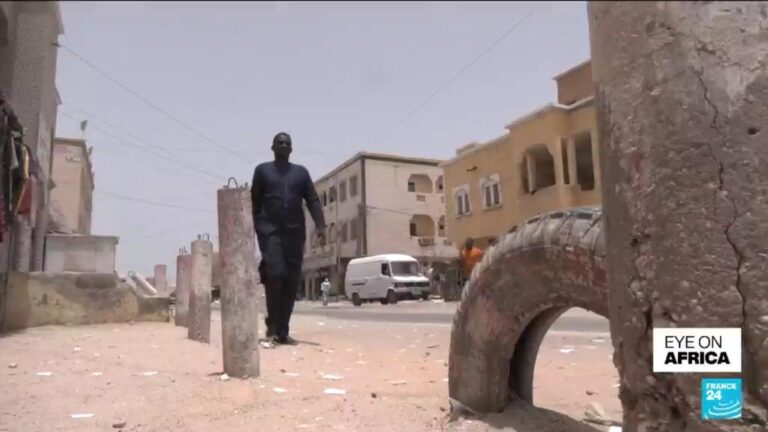Mauritanians head to the polls on Saturday with incumbent President Mohamed Ould Ghazouani expected to win a second consecutive term. But in a country deeply divided between the Arab-Berber community at the helm and a Black Mauritanian populace still suffering the effects of slavery, a controversial law making Arabic the official language in schools is stirring discontent.
From her home in Mauritania, Awa Ciré Ba is speaking to her son in Senegal via a video call. The Mauritanian mother says she decided to send her teenage son to study in neighbouring Senegal after the government in enforced Arabic as the main language of instruction in this West African country fractured on racial and linguistic lines.
“The government makes decisions without consulting the population,” she complains. “You cannot wake up one day and tell people everything has changed. This is why I looked for another solution for my son. It’s really a shame.”
As Mauritania heads to the polls on Saturday, President Ghazouani is promising more economic growth and social programmes to eradicate poverty and prevent extremism in the vast desert nation.
But the country has also been denounced for human rights abuses, with the continuous existence of slavery casting a long shadow over its history. For centuries, the country’s economic and political elite of Arab and Amazigh people enslaved Black people from the northwest Sahara.
Doro Gueye from the Association for the Recognition of National Languages has been fighting for other local languages such as Pearl, Wolof and Soninke be recognised as official languages.
Many parents, such as Ciré Ba, are also concerned about the future of the French language in the former French colony since they view a French education as a means to securing their childrens’ future.
Click on the video player above to watch the full report



